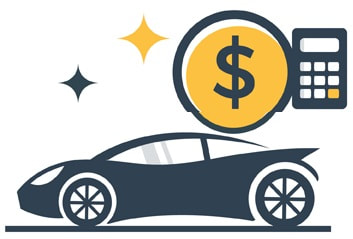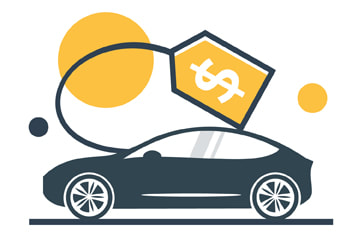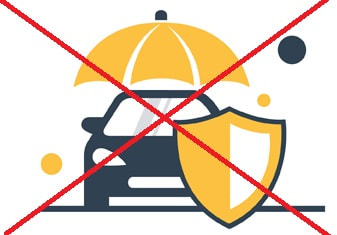What is a Guarantor on a Car Loan? - The Definitive New Zealand Guide for Anyone Considering Car Finance
A guarantor is a person who agrees to take responsibility for a loan if the borrower fails to make repayments. Our guide explains what you need to know as both a borrower and a guarantor before agreeing to a loan.
Updated 1 February 2024
Summary:
Our guide covers essentials for anyone planning to ask someone to be a guarantor:
If you've been asked to guarantee a car loan, our guide explains what you need to know:
- Asking someone to be a guarantor for a car loan means they are taking on financial responsibility to repay the loan if you, the borrower, cannot make the required payments. It's a serious commitment and should not be taken lightly by either the borrower or the guarantor.
- In most instances, the guarantor is one or two parents who agree to be a guarantor to help their son or daughter build up a credit profile. The guarantors need strong credit and regular income to be accepted by a lender.
- In addition, most car lenders will require the guarantor to prove some percentage use of the car. For example, they must live at the same address as the applicant.
- We have prepared this guide for someone applying for a car loan with the assistance of a guarantor. However, we suggest any potential guarantor read this guide too. We have published a dedicated section to help anyone considering acting as a guarantor, which outlines risks, common mistakes and frequently asked questions.
Our guide covers essentials for anyone planning to ask someone to be a guarantor:
- What Do I Need to Consider Before Asking Someone to be My Guarantor?
- Pros and Cons of Having a Car Loan Guaranteed
- Alternatives to Having a Car Loan Guaranteed
- Frequently Asked Questions for a Borrower Having their Car Loan Guaranteed
If you've been asked to guarantee a car loan, our guide explains what you need to know:
What is a guarantor?
A car loan guarantor is a person who agrees to take on the financial responsibility for a car loan if the borrower is unable to make the required payments. As a guarantor, they are "backing" the loan and are agreeing to pay off the debt if you, the borrower, can't. For example, if you take out a car loan that requires a $150/week repayment for three years and you later lose your job or can't meet the payments, you'll notify the lender, and the guarantor will make the payments until the loan is repaid.
How does this work?
How does this work?
- A guarantor signs a legal agreement outlining the terms and conditions of the loan, financial obligations and consequences if the borrower cannot make the required payments. However, defaulting on a car loan can have serious consequences for both the borrower and the guarantor, including damage to credit scores and legal action.
Do I need a guarantor for a car loan?
It depends on your financial situation. In certain circumstances, a lender may consider a borrower to be a higher risk and may require a guarantor to secure the loan. These circumstances may include being a student buying their first car, being an immigrant with no credit history, being a young adult new to the workforce, being a pensioner or receiving Work and Income benefits, or having a low credit score or bad credit.
If any of these apply to you, having a guarantor for your car loan application may be helpful to give you the best deal on a car loan.
If any of these apply to you, having a guarantor for your car loan application may be helpful to give you the best deal on a car loan.
MoneyHub Founder Christopher Walsh shares his views on car loan guarantees:
|
"Asking someone to guarantee a car loan can be a difficult subject to bring up. However, I'm fully aware many car lenders approve loans regularly for borrowers who have their parents or financially secure friends involved.
Generally, the better your credit history, the more options (and lower interest rates) you'll be offered. Unfortunately, it's near-impossible to show a substantial credit history if you're young. For this reason, having a guarantor may be an essential part of any loan application. However, guarantors need to be updated on your financial situation. If you have trouble keeping up with the repayments, you need to share this fact, even if it's difficult or embarrassing. Things go wrong when the guarantor doesn't expect to start paying for a car loan without warning. This creates a lot of tension between the borrower and guarantor. Life is short, the world is big, and there's no time to fall out with your family or friends over money. If you take full responsibility for the car loan and do your utmost to meet all the repayments, then there won't be any issues. We've published this guide to help every New Zealander make an informed decision about whether or not they want to use a guarantor". |
MoneyHub Founder
Christopher Walsh |
What Do I Need to Consider Before Asking Someone to be My Guarantor?
Asking the right person and anticipating their risks is key to a positive outcome. In many cases, the guarantor will be the parent; however, that's not an option. Whoever your guarantor is, we suggest considering the following before signing any agreement:
Important: Carefully assess the risk involved in using a guarantor and only proceed if you are confident in making the required payments. Defaulting on a loan can have serious financial and legal consequences for both the borrower and the guarantor. Unfortunately, too many families and friends fall out over money all over New Zealand - this story from the Otago Daily Times in 2017 is not uncommon, and issues with even a $5,000 car loan can cause family problems.
- Clear communication throughout the loan term is essential: It is important to have open and honest communication with your guarantor about the loan and your financial situation. Keep them informed about any changes to your financial situation or the terms of the loan, and make all required payments on time.
- Understand every aspect of the legal agreement you sign: If you are using a guarantor, you will likely be required to sign a legal agreement outlining the terms and conditions of the loan. Make sure you fully understand the terms of this agreement before signing and consider seeking legal advice if you have any questions.
- Consider your relationship with the guarantor will be affected if you can't repay the loan: Acting as a guarantor is a significant financial commitment and can strain relationships if things don't go to plan. It is important to consider the impact on your relationship with the guarantor before agreeing to use them as a guarantor.
- Exhaust the alternatives: Before agreeing to use a guarantor, consider whether there are any other options available. For example, you may be able to improve your credit score or save up and pay in cash by choosing a lower-value car. Our guide to car finance vs saving up has more details.
Important: Carefully assess the risk involved in using a guarantor and only proceed if you are confident in making the required payments. Defaulting on a loan can have serious financial and legal consequences for both the borrower and the guarantor. Unfortunately, too many families and friends fall out over money all over New Zealand - this story from the Otago Daily Times in 2017 is not uncommon, and issues with even a $5,000 car loan can cause family problems.
Pros and Cons of Having a Car Loan Guaranteed
Having a car loan guaranteed has its advantages, but it's not without risks, as we outline:
Pros:
Cons:
Pros:
- Improved chances of loan approval: If you have a poor credit history or cannot qualify for a loan on your own, a guarantor can help increase your chances of loan approval if they have a strong credit history and can afford the loan should you be unable to later meet repayments.
- Lower interest rates: Having a guarantor with a strong credit history can help to secure a lower interest rate. Lenders look at the financial details of both the borrower and guarantor and offer an interest rate accordingly.
- Avoids poor value car finance: Car finance companies range from 'affordable' to 'rip-offs'. Having a guarantor support your case gives you more options and makes you a stronger applicant and gives you access to better credit as a result.
Cons:
- Risk to the guarantor: Acting as a guarantor carries financial risk for the guarantor. If you default on the loan, the guarantor will be responsible for paying it off. This can have significant flow-on effects on your personal relationship beyond the length of the car loan.
- Limited choice of guarantor: Not just anyone can act as a guarantor. Lenders will typically require that a guarantor be a family member or close friend with a good credit history and stable financial situation. If you don't have anyone who can or will assist, then you won't be able to proceed.
- Impact on the guarantor's credit: If you default on the loan, it could have a negative impact on the guarantor's credit score.
- Loss of control: As the borrower, you may have less control over the loan if you have a guarantor. The lender may require the guarantor's approval for certain aspects of the loan, such as refinancing or making changes to the payment schedule.
Alternatives to Having a Car Loan Guaranteed
If you don't have any potential guarantors to ask or would prefer to borrow without a guarantor, there are many viable alternatives:
- Secure a loan on your own: If you can improve your credit score and financial situation, you may be able to secure a loan without needing a guarantor. The best starting point is to compare car finance offers and apply. The lower the value of the car, the less you'll need to borrow, meaning the more affordable it is.
- Finding a co-signer: A co-signer is similar to a guarantor in that they take on the financial responsibility for the loan if you cannot make the required payments. However, a co-signer is typically a more formal arrangement and may have more legal rights and responsibilities than a guarantor. For example, they'll also have the right to use the car and are usually a partner or family member.
- Leasing a car: Instead of taking out a loan to purchase a car, you may consider leasing a car. This can be a more flexible and less expensive option, but you will not own the car at the end of the rental or lease period.
- Saving up for a car: If you cannot secure a loan or are not comfortable with the financial risk of a loan, you may consider saving up and buying an entry-level car.
- Saving for a larger deposit: The more money you can show a lender and contribute to a loan, the more favourable interest rates you'll be offered and the less you'll need to repay overall.
- Using a secured loan: A secured loan requires collateral, such as a house or car, to be put up as security for the loan. This can help to reduce the risk for the lender and may increase your chances of loan approval. However, you should be careful only to use a secured loan if you are confident that you will be able to make the required payments, as you may risk losing the collateral if you default on the loan. Our guide to secured loans has further information.
Frequently Asked Questions for a Borrower Having their Car Loan Guaranteed
Why do I need a guarantor for a car loan?
In most cases, you may need a guarantor for a car loan if you do not have a strong credit history or cannot qualify for a loan on your own. A guarantor can help reduce the risk for the lender by agreeing to cover the loan if you cannot make the required payments.
Our guide to building credit helps you understand what lenders look for and how you can present your best case when applying for a car loan (or any other type of credit).
Our guide to building credit helps you understand what lenders look for and how you can present your best case when applying for a car loan (or any other type of credit).
Can I choose anyone to be my guarantor?
No - not just anyone can be a guarantor. Lenders will typically require that a guarantor be a family member or close friend with a good credit history and stable financial situation.
Can I change my guarantor if I need to?
It may be possible to change your guarantor, but it will depend on the terms of the loan agreement. You should discuss this with the lender to understand your options.
Will my guarantor's credit be affected if I default on the loan?
If you default, the guarantor is legally responsible for paying back the loan and any charges owing. If they don't repay the loan, your guarantor's credit will be affected as the loan will be in default. Ask the lender before agreeing to any loan if the loan agreement doesn't clarify these steps.
|
Christopher Walsh
MoneyHub Founder |
MoneyHub's Top Car Finance Options - Avoid high interest rates and fees with trusted lenders.
Our Trusted and Affordable Car Lenders Committed to Fast Quotes:
|
Must-Know Considerations for Anyone Guaranteeing a Car Loan
- Credit history: Your credit history will be taken into consideration when you act as a guarantor. Lenders will want to ensure that you have a good credit history and are financially stable. You can access your record free of charge by following our credit score and history guide.
- Responsibility: As a guarantor, you are responsible for paying off the loan if the borrower cannot. This means that you should only agree to act as a guarantor if you are confident that the borrower will be able to make the required payments.
- Risk: There is a risk involved in acting as a guarantor. If the borrower cannot make the required payments, it will be your responsibility to pay off the loan. This could have a significant impact on your finances and credit score.
- Alternatives: Before agreeing to act as a guarantor, consider whether there are any other options available. For example, the borrower may be able to secure a loan on their own or find a co-signer with a better credit history.
- Legal agreement: If you agree to act as a guarantor, you will likely be required to sign a legal agreement. Make sure you fully understand the terms and conditions of this agreement before signing.
Our View: Acting as a guarantor for a car loan is a serious financial commitment that should not be taken lightly. Consider all of the factors carefully before making a decision. Do not feel pressure to sign - the best thing you do is say no upfront. With the cost of living so high in New Zealand, the future is uncertain. Taking on the liability of someone's car loan is a significant risk.
Common Mistakes Guarantors Make
Guaranteeing a loan comes with many risks. To avoid common problems we suggest taking not of common mistakes made by inexperienced guarantors:
More information: We consider car loan guarantees to be high-risk. Our guide to lending money to friends and family has further information about how to protect your interests while assisting someone's loan application.
- Not fully understanding the terms and conditions of the loan agreement: Guaranteeing a car loan for a friend or family member is a high-risk commitment. You'll need to fully understand the terms and conditions of the loan agreement and the potential risks and consequences if the borrower cannot make the required payments. In most cases, this will be making ongoing car loan repayments until the borrower can start repaying (if that's possible).
- Not being financially stable: Lenders will typically require that a guarantor have a good credit history and be financially stable. If you are not in a strong financial position, you may not be able to act as a guarantor which can lead to the car loan application being declined.
- Not communicating with the borrower openly and honestly: You're on the hook for ongoing payments should the borrower get into financial trouble. For this reason, you need to communicate openly and honestly with the borrower about the loan and the borrower's financial situation. This means telling the borrower to let you know if they have any difficulty making the required payments as soon as possible. The more you know, the faster you can take action (if necessary) and protect your financial situation.
- Not seeking legal advice: If you are unsure about any aspect of the loan agreement, it is important to seek legal advice before agreeing to act as a guarantor. This can help to protect your rights and interests.
- Not considering the impact on their financial situation: Acting as a guarantor can significantly impact your own financial situation. It is important to consider the risks and consequences before agreeing to act as a guarantor. For example, it may affect your ability to borrow for a home or personal loan if you're constrained by the guarantee.
More information: We consider car loan guarantees to be high-risk. Our guide to lending money to friends and family has further information about how to protect your interests while assisting someone's loan application.
Frequently Asked Questions for Guarantors of a Car Loan
Guaranteeing a loan is not an everyday activity, and significant financial and relationship risks are involved. Our list of common queries is published to help you make an informed decision. However, it's not a complete list - we strongly suggest asking the lender to explain anything you don't understand before signing as a guarantor. Once you sign, getting out of the obligations is difficult.
Can I be a guarantor if I have bad credit?
It is possible to be a guarantor with bad credit, but it may be more difficult to secure a loan. The purpose of a guarantor is to be able to provide backup should the main borrower default - if you've been unreliable in the past in paying debts then lenders will be less willing to accept you as a guarantor.
In most applications, lenders will want to see that you have the financial stability to cover the loan if necessary, so having a good credit profile is essential. Our guide to credit profiles and accessing your credit history explains how to access your information.
In most applications, lenders will want to see that you have the financial stability to cover the loan if necessary, so having a good credit profile is essential. Our guide to credit profiles and accessing your credit history explains how to access your information.
Do I have to put up collateral to act as a guarantor?
It depends on the lender, but usually the answer is yes. In such cases, the collateral could include assets such as a house or car. These will not be called on as long as you repay the balance of the car loan if and when the borrower defaults.
How long do I have to act as a guarantor?
The length of time you are required to act as a guarantor will depend on the loan term. Understanding the full extent of your financial commitment is important before agreeing to act as a guarantor.
Can I stop being a guarantor?
It may be possible to stop being a guarantor, but it will depend on the terms of the loan agreement. You should discuss this with the lender and the borrower to understand your options.
Related Guides:
Best Car Finance
Popular Comparisons
Popular Guides
Car Finance Company Reviews:
Car Loan Insurance
Business Car Financing:
Best Car Finance
Popular Comparisons
- Personal Loan vs Car Loan - What is Better for Buying a Car?
- Car Dealership Finance vs Alternative Finance
Popular Guides
- How to Save for a Car
- Car Loans and Collateral
- Bad Credit Car Loans
- Balloon Payments
- How to Refinance Your Car Loan
- Car Loan Refinance Calculator
Car Finance Company Reviews:
- Better Finance Review
- Kiwi Car Loans Review
- MTF Finance Review
- Simplify Loans Review
- Car Loan Brokers vs Direct Car Finance Companies
Car Loan Insurance
- Mechanical Breakdown Insurance (MBI)
- Guaranteed Asset Protection Insurance (GAP)
- Payment Protection Insurance (PPI)
Business Car Financing:














